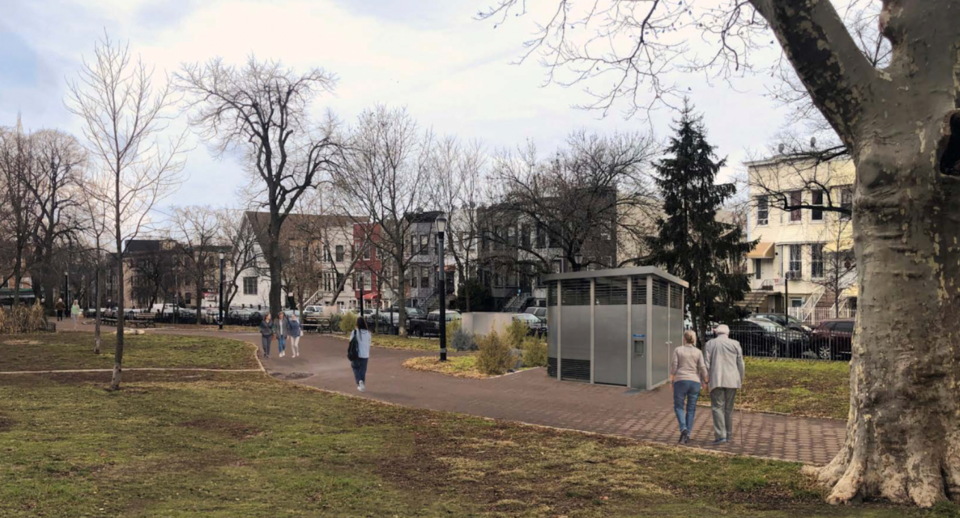New York’s Department of Parks and Recreation is preparing for a trial run of kiosk-like public bathrooms in one pilot location in each borough, reports The City. The announcement arrives after years of combating strict New York City building code restrictions on prefabricated construction.
The five toilets, created by Oregon-based metal firm Portland Loo Toilets, cost just a fraction of the estimated multi-million dollar cost for building a traditional public bathroom, with a price tag of roughly $185,000. However, the overall budget to buy and install five Portland Loos, starting as early as summer 2024, could reach as much as $5.3 million. The hefty price tag includes costs for running new electric and water lines to the units, along with prep work, foundation work and other construction needs.
“We are installing Portland Loos in one park in each borough, in areas specifically chosen because they did not previously have bathrooms,” Parks Department spokesperson Meghan Lalor. “This is a pilot to determine the feasibility of using this model in the future as an economical solution to building bathrooms in parks.”
The modular bathrooms resemble futuristic newspaper kiosks, with slatted sides intended to provide needed privacy and curb illicit behavior. Each site also includes a baby-changing table and a separate hand-washing station, documents show.
The proposed sites for the trial run are Irving Square Park in Bushwick, Brooklyn; Thomas Jefferson Park in East Harlem, Manhattan; Hoyt Playground in Astoria, Queens; Father Macris Park in Graniteville, Staten Island; and Joyce Kilmer Park near Yankee Stadium in The Bronx.
The Parks Department continues to explore other faster and cheaper restroom options as the challenge to find clean public bathrooms is a challenge all too familiar to New Yorkers. And while strict New York City building code restrictions on prefabricated construction have dragged out getting public toilets out on the street and into our parks, many city officials and advocates agree- the red tape that slows down the process for building parks projects will have to change.




